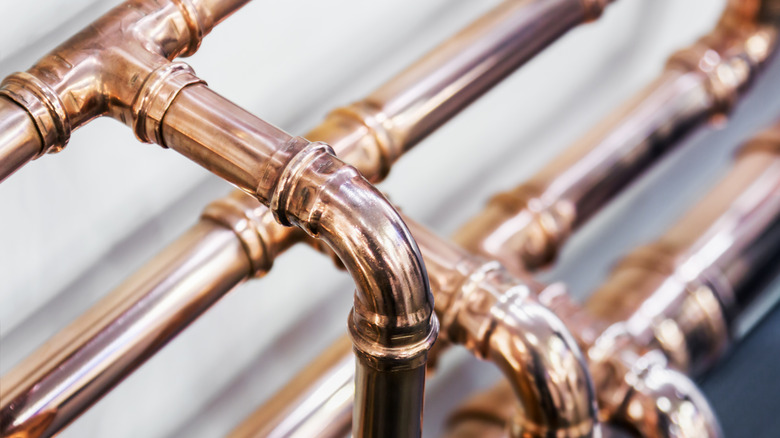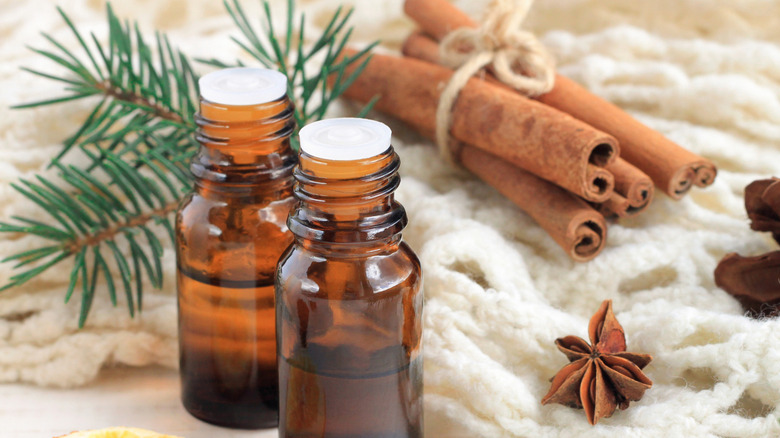Keep All Of Your Copper Pipes Corrosion-Free With This Unlikely Essential Oil
Copper pipes are the gold standard for home plumbing, and for good reason. They resist corrosion better than old-fashioned cast iron pipes, can handle water temperatures that go up to 400 degrees Fahrenheit, and can last up to 50 years with proper maintenance, which gives you more bang for your buck. However, if you don't maintain your pipes, they can become susceptible to corrosion, but cinnamon oil can help you combat that.
Copper pipes exposed to things like well water, bacteria, or low or high-pH water can create pitting and corrosion. This can eventually lead to leaks or your pipes to burst, which in turn will lead to expensive plumber bills. To avoid all of that, you can use cinnamon oil as a routine maintenance tool to keep your pipes intact. It's a great hack since it uses something as affordable as an essential oil, making it super easy and convenient to keep up with. Here's how to utilize this common oil to protect your plumbing.
How to use cinnamon oil to prevent corrosion
To keep corrosion at bay from your plumbing, grab your cinnamon oil and use it to treat both the inside and outside of your pipes. For the outside, simply rub the essential oil into them. You obviously can't do this to pipes installed behind your drywall, but if you have any exposed sink pipes or exposed piping in the garage or basement, you can maintain them by diluting the oil with a bit of water and rubbing it on once every few months.
As for the inside of the pipes, simply pour 10 to 20 drops of cinnamon oil down drains and let it coat the pipes for 30 minutes to an hour, before letting water run through them again. This will help protect the inside of the pipes from any buildup that can eventually lead to corrosion. Cinnamon oil works to preserve copper pipes because it is antibacterial and antifungal, so it can remove any of the harmful bacteria and buildup that might eventually lead to corrosion. It is also acidic — clocking in at a pH of 4.5 – which can help neutralize high-pH water.

